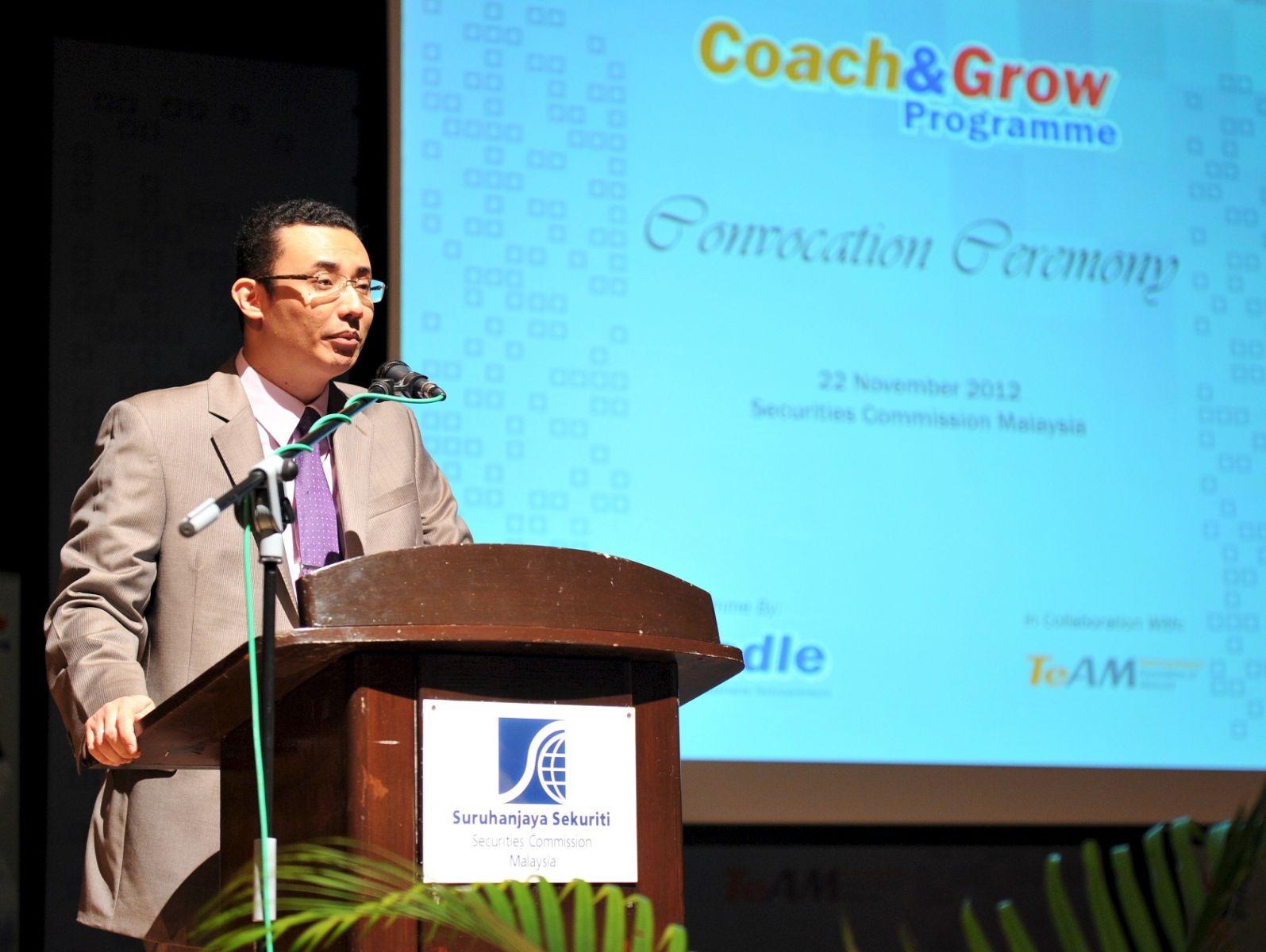Malaysia's start-up scene needs to break out of stealth mode
By Gabey Goh November 23, 2012
- Malaysia's startup ecosystem may be more active but it remains under the radar in the global arena
- More needs to be done to market the country's activities and initiatives overseas
 MALAYSIA may have one of the most active developing startup ecosystems in the region but we don’t do a good enough job of promoting the fact.
MALAYSIA may have one of the most active developing startup ecosystems in the region but we don’t do a good enough job of promoting the fact.
That was the observation made by Cradle Fund chief executive officer Nazrin Hassan (pic) when asked for his opinion about a new report released this week by research company Startup Genome and Telefónica Digital which highlights the most influential startup ecosystems around the world.
He was speaking to members of the press during the convocation ceremony for those who successfully completed the Coach and Grow Program (CGP), an entrepreneur training program launched in July of last year.
Cradle Fund is a non-profit agency under the Ministry of Finance that manages the Cradle Investment Program.
Only two Asian cities were listed in the Top 20 – Singapore (#17) and Bangalore (#19) – with Silicon Valley, Tel Aviv and Los Angeles as the Top 3 startup hubs.
The Startup Ecosystem Report 2012 stated that Singapore has “the potential to become the central startup ecosystem of Asia, bringing together the markets of China, India, Indonesia, and Malaysia.”
It further stated that the island nation’s "unique geographical position at the heart of Asia provides a fertile environment for entrepreneurs to start, grow and scale their businesses not only in Asia, but globally.”
Nazrin said he had yet to look at the report but said there is a lot more happening in Malaysia than perhaps some of the ecosystems mentioned and that there is “a very real effort” from both government and private sector to improve the ecosystem.
“I would not say we are far behind on any of the other ecosystems really,” he said.
Nazrin added that in any country, be it Singapore or the United States, the ecosystems that attract migrants tend to attract more publicity as well.
“And of course talent, which goes without saying, as you’re importing talent from abroad. Not many developing countries would take that open approach of importing foreigners freely,” he said.
“It may generate a more vibrant ecosystem but in the long run, there are backlashes to that and we’re already seeing that in Singapore. There are too many foreigners and the locals are being squeezed out of opportunities,” he claimed.
The key question for developing economies then, said Nazrin, is how you build your own internal system and make it international without compromising to the point where foreigners take over the system. “Every developing economy will take a different approach to this.”
To illustrate, he pointed to his recent experience during the World Entrepreneurship Forum in Lyon, France.
When interacting with the representatives of other developing economies present at the forum, not many people knew about the initiatives in Malaysia, and many were greatly surprised, even the representatives from more advanced economies.
Nazrin shared that most developing economies would look to Malaysia for inspiration for initiatives they can adopt to move their own ecosystems along.
“Some of the solutions given by developed countries did not really apply to them because they start from the assumption that we have infrastructure in place already such as world class universities. For developing economies, where many of the institutions are weak, how do you move it along, what are the steps that you take?” he said.
However he acknowledged that Malaysia will need to market its initiatives better.
“I think more of the world needs to know about some of the things going on here and fair coverage of that has not been done,” he said.
When asked who he thought should be taking the lead to coordinate and promote such marketing efforts, Nazrin said: “I wouldn’t want to say!”
Related Story:


